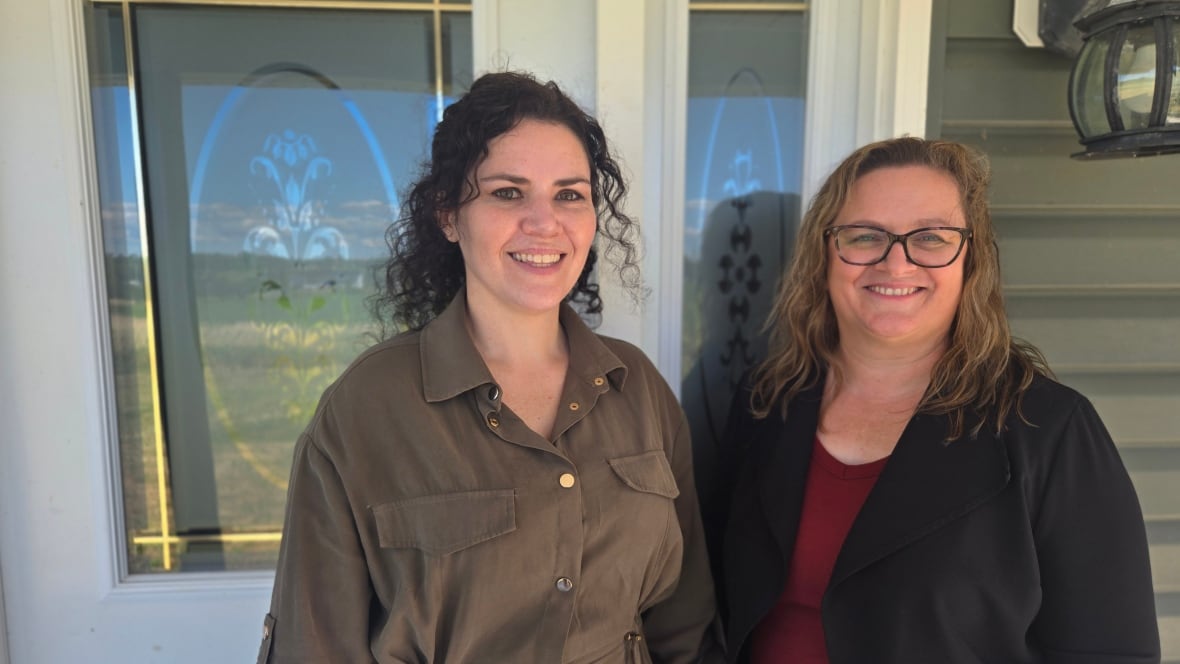Lifestyle
New Housing Initiative Aims to Empower Former Inmates in New Brunswick

A new housing initiative in Greater Miramichi, New Brunswick, is set to provide a supportive environment for formerly incarcerated women as they pursue vocational education in the trades. The project, named My Way, will welcome its first six tenants this fall, offering them not just shelter but a pathway to stability and personal growth.
The Elizabeth Fry New Brunswick organization spearheads this effort, with a facility designed to foster both community and personal development. Upon entering the building, visitors are greeted by a spacious living area and a staircase adorned with seven picture frames, each representing a step in the journey of self-improvement. Christine Wark, the housing director, expressed her aspirations for the project, stating, “I hope to see every human feeling being felt.”
Support for residents will be comprehensive, with on-site workers available 24/7 to assist with cooking, emotional challenges, and other daily needs. This holistic approach is crucial, as many women exiting the prison system face significant hurdles, including lack of housing and emotional instability.
The project draws inspiration from the experiences of Sara Tessier, a former inmate whose access to stable housing and education made a significant difference in her life post-incarceration. Tessier highlighted the long-lasting impact of a criminal record on employment opportunities, stating, “If a judge sentences someone to five years, well, really they’re being sentenced for life.”
With a generous investment of $2 million from the Northpine Foundation, the My Way project aims to break the cycle of reoffending by providing essential resources and education. Tessier now works with the Northpine Foundation, which focuses on projects that alleviate poverty and support vulnerable communities.
The director of Elizabeth Fry New Brunswick, Elizabeth Clark, emphasized the critical gaps in support for individuals reentering society after incarceration. Many leave prison with no income, housing, or social support, creating an environment ripe for failure. Clark stated, “Coming out of … a prison facing that much adversity sets people up to fail.”
The implications of recidivism extend beyond the individual, impacting society at large. Clark pointed out that the cost of incarceration is substantial, with the New Brunswick Department of Public Safety reporting an average annual cost of $88,300 to house an inmate in 2022-2023. “It’s cheaper to provide people with an opportunity than to pay for them to be incarcerated,” she noted.
The My Way project will also incorporate practical life skills training, including meal planning and preparation. Residents will have the opportunity to engage in gardening, growing their own food as part of their rehabilitation process. This hands-on approach not only fosters independence but also cultivates a sense of community among the residents.
The New Brunswick Community College has tailored its introduction to trades program specifically for the women in this housing initiative, offering courses in electrical work, plumbing, and carpentry. Although the college did not respond to inquiries for this article, the program aims to facilitate direct entry into apprenticeships or further educational opportunities for graduates.
Clark remarked on the unique challenges faced by women post-incarceration, noting that while trades are often male-dominated, they offer a more accessible path for women with criminal records compared to traditionally female occupations. “Imagine childcare, education, things like that,” she said, highlighting the barriers that exist for women in those fields.
The My Way project currently has funding secured for its first two years, with plans for permanent operation and potential expansion if the model proves successful. As the demand for skilled trades increases, this initiative not only benefits the participants but also contributes positively to the local economy.
In summary, the establishment of the My Way project in Greater Miramichi represents a significant step towards addressing the needs of formerly incarcerated women. By focusing on education, community support, and practical skills, this initiative aims to empower individuals to rebuild their lives, reduce recidivism, and foster a more inclusive society.
-

 Politics4 weeks ago
Politics4 weeks agoSecwepemc First Nation Seeks Aboriginal Title Over Kamloops Area
-

 World5 months ago
World5 months agoScientists Unearth Ancient Antarctic Ice to Unlock Climate Secrets
-

 Entertainment5 months ago
Entertainment5 months agoTrump and McCormick to Announce $70 Billion Energy Investments
-

 Science5 months ago
Science5 months agoFour Astronauts Return to Earth After International Space Station Mission
-

 Lifestyle5 months ago
Lifestyle5 months agoTransLink Launches Food Truck Program to Boost Revenue in Vancouver
-

 Technology3 months ago
Technology3 months agoApple Notes Enhances Functionality with Markdown Support in macOS 26
-

 Lifestyle3 months ago
Lifestyle3 months agoManitoba’s Burger Champion Shines Again Amid Dining Innovations
-

 Top Stories2 months ago
Top Stories2 months agoUrgent Update: Fatal Crash on Highway 99 Claims Life of Pitt Meadows Man
-

 Politics4 months ago
Politics4 months agoUkrainian Tennis Star Elina Svitolina Faces Death Threats Online
-

 Sports5 months ago
Sports5 months agoSearch Underway for Missing Hunter Amid Hokkaido Bear Emergency
-

 Politics5 months ago
Politics5 months agoCarney Engages First Nations Leaders at Development Law Summit
-

 Technology5 months ago
Technology5 months agoFrosthaven Launches Early Access on July 31, 2025





















